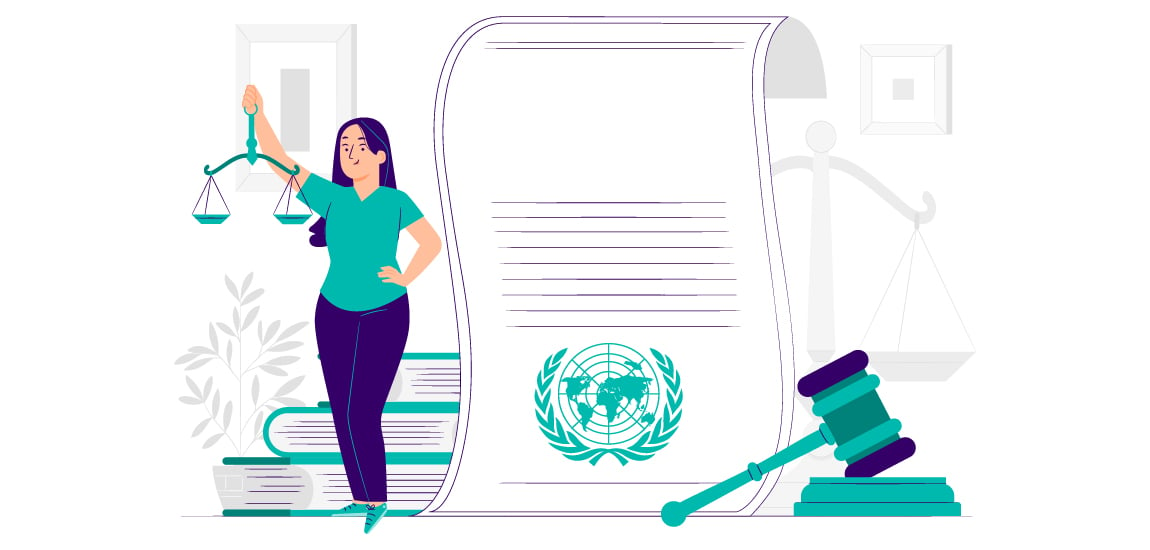
The Guide to Accurate Court Certified Translation Services
When it comes to legal matters, accuracy is key. This is especially true when dealing with court certified translations. Whether you are translating contracts, court documents, or other legal materials, it is essential to ensure that the translation is not only accurate but also certified by a qualified professional. In this guide, we will discuss how to obtain accurate court certified translations and the importance of using specialized legal translators.
Understanding Court Certified Translations
Court certified translations serve a pivotal role within the legal framework, acting as the bridge for documents that need to be officially recognized in legal settings. These translations go beyond mere linguistic conversion; they necessitate a verifiable declaration from a certified translator regarding the translation’s fidelity and completeness. This verification often comes in the form of a signed affidavit by the translator, asserting the accuracy of their work and their competency in both the source and target languages, alongside their expertise in legal terminologies and document requirements. Such a rigorous process ensures that the translated document is not just a text translated from one language to another but is a document that maintains its legal integrity and is acceptable in court proceedings, immigration filings, and other critical legal situations. A key aspect of these translations is that they must be executed by professionals who have a comprehensive grasp of the legal domain, ensuring that every term and phrase aligns with the precise meaning intended in the original document. This level of precision is crucial for the document to fulfill its purpose in legal contexts, where the smallest discrepancy can have significant ramifications. It’s this meticulous approach to both linguistic and legal fidelity that sets court certified translations apart from standard translations, making them indispensable for any matter requiring official document translation within the legal sector

The Importance of Specialized Legal Translators
Navigating the intricate landscape of legal terminology and concepts requires a translator with more than just linguistic skills. Specialized legal translators bring a unique set of qualifications to the table, blending fluency in the relevant languages with a deep-rooted understanding of legal systems and practices. These translators have typically undergone extensive training not only in language studies but also in legal studies, equipping them with the knowledge to handle the nuanced and often complex legal language found in documents like contracts, patents, and litigation paperwork. Their expertise allows them to discern the precise legal implications of terms that might have multiple meanings, ensuring that the translated document accurately reflects the original’s intent and adheres to the specific legal standards of the target jurisdiction.
Moreover, specialized legal translators are familiar with the cultural aspects that might affect the interpretation of legal documents. This cultural competence is crucial when translating documents that will be used in diverse legal environments, helping to avoid potential misinterpretations that could arise from cultural differences. By employing a translator who is not only a linguist but also a legal expert, clients can be confident that their documents maintain their legal potency and achieve the desired impact in their target language. In essence, the role of specialized legal translators is indispensable in preserving the integrity of legal documents across linguistic boundaries, ensuring that every translated term upholds the document’s original meaning and legal validity.
Ensuring Accuracy in Legal Official Translations
To achieve the highest level of accuracy in legal official translations, a multifaceted approach is required. This begins with the selection of translators who are not only linguistically proficient but also possess an in-depth knowledge of legal terminology and concepts pertinent to the documents in question. These professionals should have a strong background in both the source and target legal systems to navigate the complex nuances effectively.
A crucial step in the accuracy assurance process involves implementing a robust review mechanism. This entails a detailed examination of the translated document by a second qualified legal translator, who can identify and rectify any potential errors or ambiguities. This dual-layer review ensures that the translation is not only linguistically accurate but also legally coherent, reflecting the original document’s intent and significance accurately.
The use of specialized glossaries and legal databases by translators plays a significant role in maintaining consistency and precision in terminology. By referencing these resources, translators can ensure that the specific legal jargon is translated consistently across all documents, further enhancing the translation’s accuracy.
Additionally, staying abreast of changes in legal terminology and regulations is vital. Continuous education and professional development allow translators to keep up with legal evolutions, ensuring that their translations remain current and fully compliant with the latest legal standards.
Engagement with legal professionals, such as attorneys or legal analysts, during the translation process can provide valuable insights, especially for complex or highly technical documents. This collaboration enables the identification of potential legal nuances that may impact the translation, ensuring the final document is not only accurate but also legally sound.
The Certification Process for Translated Documents
The pathway to certifying translated documents for legal use is a critical step that underlines their validity and acceptance in legal proceedings. This process typically involves the translator or translation service provider preparing a formal declaration, commonly known as a Certificate of Accuracy. This document attests to the truthfulness, completeness, and reliability of the translation, confirming that it faithfully represents the original text in every detail.
Following the preparation of this declaration, the next phase involves the formal notarization of the certificate. A notary public or other authorized official reviews the certificate alongside the translated document. Upon satisfactory review, they affix their official seal or stamp, thereby notarizing the certificate. This notarization acts as an additional layer of verification, indicating that the qualifications of the translator and the accuracy of their work have been duly recognized.
It is important to note that the requirements for certification can vary significantly based on the jurisdiction and the specific needs of the legal entity or court. Some situations may call for further validation steps or the involvement of additional legal endorsements to meet the stringent standards set forth by certain legal bodies or countries.
In choosing a translation service for documents requiring certification, one must ensure that the provider is well-versed in these procedural nuances. They should be capable of navigating the certification process efficiently, ensuring that the translated documents are not only accurate but also carry the necessary certifications to be deemed legitimate in their intended legal context.

Choosing the Right Translation Service Provider
In the quest for a translation service provider adept at handling court certified translations, thorough vetting is imperative. A provider with a specialization in legal translations is more likely to understand the nuances and complexities involved in accurately translating legal documents. It is advisable to seek out a company that has a proven track record of success in delivering precise and officially certified translations. This not only assures you of their competency but also their familiarity with the legalities and certification processes involved.
The expertise of the translators is another critical factor to consider. They should not only be linguistically skilled in both the source and target languages but also have a solid understanding of legal terminologies and concepts. This dual expertise ensures that translations are not only accurate but also resonate with the legal essence of the original documents.
Quality control processes are equally vital. A provider that implements rigorous quality assurance measures, including peer reviews and checks for consistency in legal terminology, is more likely to produce translations that meet the stringent standards required for legal documents.
Finally, the efficiency and reliability of a translation service cannot be overlooked. Given the often time-sensitive nature of legal proceedings, the provider’s ability to deliver accurate translations within stipulated deadlines is crucial. This efficiency should not compromise the thoroughness or quality of the translation process, ensuring that the final document is both accurate and legally valid.
Navigating International Legal Translations
Handling documents that need to be understood and accepted across different legal systems adds another layer of complexity to the translation process. It’s essential to select a translation service experienced in maneuvering through the variances of international legal landscapes. Such expertise ensures that translations not only adhere to the exact legal standards of the destination country but also respect its unique cultural nuances. An adept provider in this field will have a nuanced understanding of the legal structures and requirements specific to different regions, facilitating the translation of documents in a way that they retain their legal force while being fully intelligible to the target audience. Furthermore, working with translators who are not just linguistically proficient but also intimately familiar with the legal practices of both the source and destination countries is crucial. This dual knowledge base enables them to accurately translate complex legal concepts and terminologies, which may not have direct equivalents in the target language. It also helps in preemptively identifying and addressing potential legal discrepancies that could affect the document’s acceptance or validity in the target jurisdiction. Engaging with a provider well-versed in international legal translations can significantly streamline the process, ensuring that your documents are not only legally accurate but also culturally and jurisdictionally appropriate.
Frequently Asked Questions
What are court-certified translation services?
Court-certified translation services involve translating legal documents and other important papers by a translator who is officially recognized (or certified) by a court system. This certification attests that the translator is competent to translate legal documents accurately. Such services are crucial for court cases, immigration, and any legal processes involving documents originally in a language different from the court’s official language.
Why is it important to use a court-certified translator?
Using a court-certified translator ensures that the translation of legal documents meets the rigorous standards required for court proceedings and legal matters. These translators have proven their linguistic expertise and understanding of legal terminology and practices to a certifying authority, often through rigorous testing. Their translations are considered reliable and are less likely to be contested in legal settings.
How does one become a court-certified translator?
The process varies by jurisdiction but generally involves passing a certification exam that tests not only the translator’s language proficiency but also their knowledge of legal terminology and the legal system. Some jurisdictions may require background checks, continuing education, and periodic re-certification. It’s important to research the specific requirements in the jurisdiction where the translation will be used.
What types of documents require court-certified translation?
Many legal documents require court-certified translation, especially if they are to be submitted to a court or used in a legal proceeding. Common examples include birth certificates, marriage certificates, divorce decrees, wills, contracts, legal rulings, and any document submitted as evidence that is not in the official language of the jurisdiction where the legal matter is being handled.
How can I ensure my translated document is accepted by the court?
To ensure your translated document is accepted by the court, you should:
- Use a translator or translation service that is certified by the court system in the jurisdiction where the document will be submitted.
- Verify the translator’s credentials and ensure they are up-to-date.
- Request a statement of certification or affidavit of accuracy from the translator, which attests to the accuracy of the translation and the competence of the translator.
- Check if the document requires notarization or any other form of official recognition beyond the translation itself.
- Consult with legal counsel or the court to confirm the specific requirements for document submission, as these can vary widely depending on the type of document and the legal jurisdiction.

Sorry, the comment form is closed at this time.